MAMZER is a CHILD born to a WOMAN accused of engaging in a biblically forbidden union (Leviticus, Chapters 18 and 20). If a person is deemed to be a mamzer, the halakha applies that status to their descendants, for all generations to come. In addition, the halakha applies the mamzer status to a child irrespective of whether or not their mother entered into the biblically forbidden union by agreement, or by force.
Biblically forbidden unions include relations between blood relatives (consanguinial relations) and adultery, as well as unions between in-law relatives (affinal relations). Not all these relations are intuitively problematic. For example: 1. The halakha considers a child to be a mamzer if born to a woman who has had relations with her sister’s ex-husband, on the condition that her sister is still alive. If her sister is deceased, the union is not forbidden and any child born would not be stigmatized. 2. The halakha considers a child to be a mamzer if born to a widow who has had relations with her (ex) brother-in-law, provided that she already has had children with her husband. If she had had no children, the union with her brother-in-law would be biblically mandated (yibum) and any child born would not stigmatized. 3. Under the halakha, a child born to a woman who has had an extra-marital affair with a Jew would be stigmatized as a mamzer. But if she conducted an affair with a non-Jew, the child is not stigmatized.
Because Israel imposes halakha, religious laws, on its citizens with regard to their personal status, the state monitors, documents, and stigmatizes citizens with mamzer status. The state does not allow a mamzer to marry a non-mamzer, though it will, theoretically at least, permit a mamzer to marry another mamzer or a convert. The state will place a suspected mamzer on a computerized black list. What’s more, the state, in the attempt to side-step the problem of mamzer, has passed secular laws that infringe on the rights of children and fathers. If a child is born any time within 300 days of a divorce, the state will only acknowledge the ex-husband as the child’s father (section 22 of the Population Registration Law of 1964), even though he may not be the biological father of the child. If a man wants to deny or confirm his paternity to a child, the state can deny his request to have the child undergo genetic testing if a rabbinic court suspects that such testing will threaten a child with mamzer status (section 28e of Genetic Testing Law of 2000, amendment 2008).
Refusal of the state to acknowledge the biological father of the child raises many problems. The state may deny a child the right to inherit from his biological father, to collect child support, or simply to know who their father is. The state may deny a man his rights to act as the parent to his biological child. An ex-husband who is wrongfully designated as the father of a child by the state can use that fact to take revenge on his ex-wife at the expense of the child.
In the Center for Women’s Justice, we have set up a forum called “The Tears of the Oppressed” made up of lay persons and religious leaders dedicated to finding halakhic and legal solutions to the problem of mamzer in Israel. It is headed by CWJ’s Rivkah Lubitch. We believe that the state should protect the child from the religious mamzer status and not impose it in any way. A child has the right to know his father, to be supported by him, and to inherit him.
Read more about mamzer status in Israel
